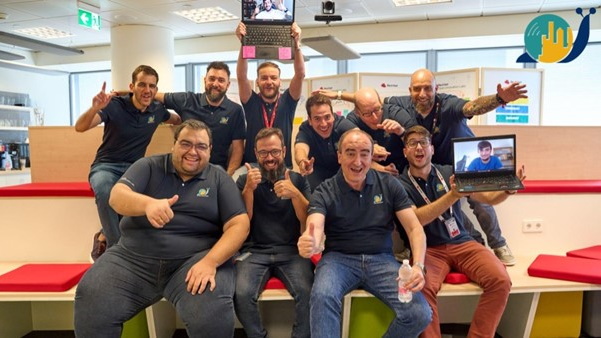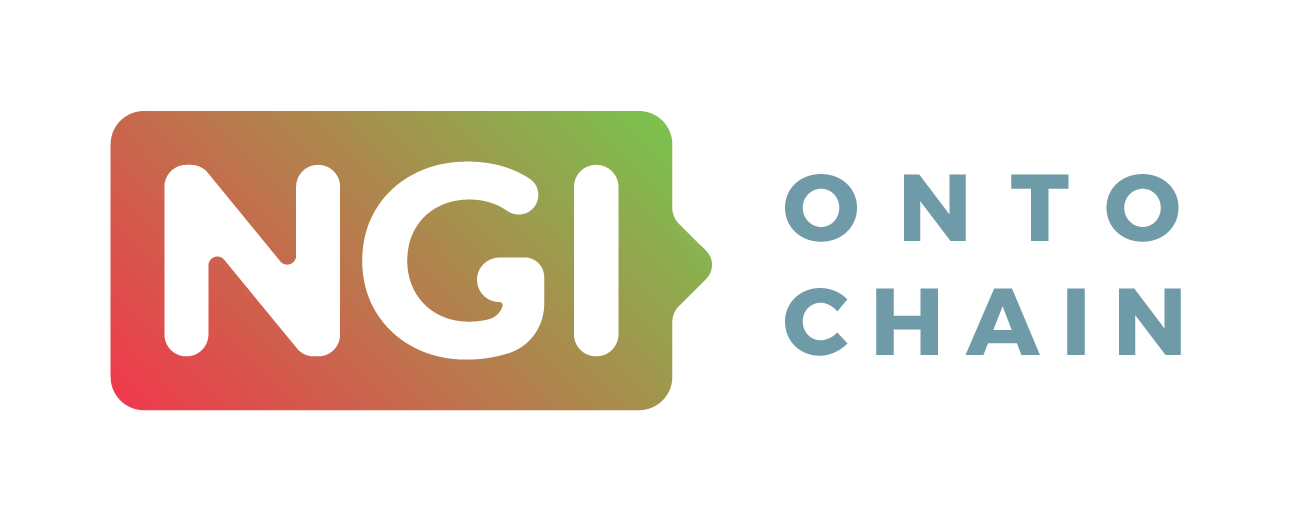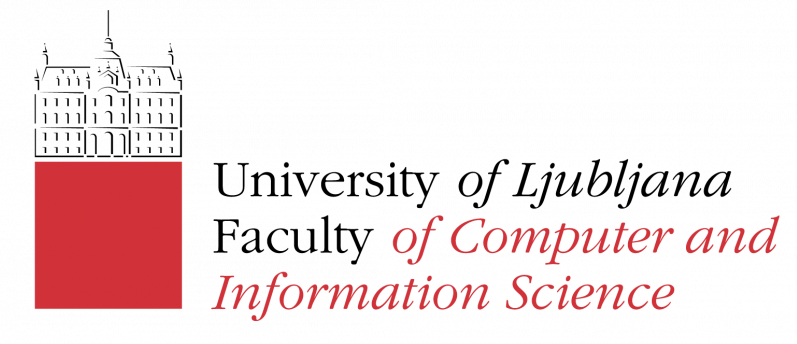GEONTOLOGY project proposes a geo-aware network protocol, for enabling trustable cross-border operations and data exchange in a global digital economy. Learn in this interview with team member Antonio Jara how geolocation fits in ONTOCHAIN and its contribution to a safer and more open internet.

How did you hear about ONTOCHAIN, and what drove you to apply?
HOPU is a company that was boosted as part of the FIWARE acceleration programme; NGI, as a follow-up programme from the previous activities around FI-PPP (FIWARE), has been consistently highly relevant and complementary to HOPU’s value proposition and know-how. For that reason, HOPU has been tuned about NGI opportunities from the very beginning, even when not joined any initiative until ONTOCHAIN.
We found in ONTOCHAIN a unique programme aligned with the current efforts as part of the market development focused on semantic interoperability, linked data, and ontologies, together with the latest technology trends and revolution around the blockchain. In particular, HOPU is one of the key contributors to technologies such as ETSI SAREF for the semantic interoperability in intelligent appliances, smart cities, energy, and e-health, and also is one of the prominent supporters of the initiative led by the FIWARE Foundation, Smart Data Models, where we are working on defining the data models agnostic to any platform (nowadays, Smart Data Models are being used by FIWARE, Microsoft Azure, Amazon Web Services – Smart Territory Framework, IUDX platform in India, TMForum in the USA, OASC in over 250 cities etc.).
Thereby, we found an excellent opportunity to extend FIWARE semantics and Smart Data Models with geolocation information as part of the current challenges with data spaces (GAIA-X) and data economy; note that also, as part of the FIWARE Foundation, the Data Spaces Business Alliance has been recently established.
HOPU’s project in ONTOCHAIN, called GEONTOLOGY, is bringing all the capabilities of geolocation for new services focused on the data economy, especially addressing the challenges around data spaces, data sovereignty, and critical issues about cross-border data exchange.
Tell us a bit about the story behind your team. What drives you, and what brought you together?
HOPU is the result of the PhD results from Antonio Jara; HOPU started by end of 2014 with part of the research team working on the University, as the current CTO, David Fernández. In the beginning, HOPU had a research-oriented ambition as a consequence of the research background of the initial team. However, 4 years ago HOPU pivoted drastically the mission and vision towards a business area that could take benefit of the value proposition; after all these explorations, the conclusion was Smart Cities, which satisfies the product-market fit that previous try did not succeed. Nowadays, HOPU is totally focused on addressing new market opportunities around climate change mitigation, enabling high data quality and data trustability through key added-value services where geolocation, data sources verification and security are key values, which are aligned with the ONTOCHAIN initiative.
Nowadays, the GEONTOLOGY team engages people with a very heterogeneous and multidisciplinary background, which merges 3 domains, networks, AI and blockchain. First, related to blockchain key people as Germán Molina (HOPU’s Chief Information Officer, who leads the data platform at HOPU and has contributed to projects as Hyperledger), Pablo Salguero who leads business development applied to new technologies, and has relevant expertise in Solidity and smart contracts. Second, AI-background is supported by Nuria Bernabé Mulero who has a Master and is PhD candidate in AI and big data analytics, together with Carlos Torralba who is a computer engineer, whose thesis is around GEONTOLOGY outcomes and Jaime Martinez who is a disruptor of AI and data analytics, applying together with Carlos different types of algorithms and analytics to enable a data-optimal classification of the geolocation, reducing the potentials errors related to misclassification as a result of VPNs, proxies or other network manipulation mechanisms. Finally, the networking team with a strong background in the bases of IP networks are led by Antonio Jara (PhD in IoT with a strong background in networking working with Internet fathers such as Peter Kirstein and Vint Cerf for IoT), together with Jaime Sánchez, who is a computer engineer with the specialization of networks and its applicability in the Future Internet, including blockchain and IP networks co-existence and convergence.
Can you briefly explain your project and its contribution to the ONTOCHAIN software ecosystem?
GEONTOLOGY is a project motivated by the emerging regulations about data economy and data protection. This research has perceived the interest of industry with key players. There is a common interest and need to guarantee that network infrastructure should move towards support of geolocation control to satisfy the mentioned regulations. For that reason, the expected research results have a direct impact on the ONTOCHAIN software ecosystem, which is supporting the demonstration and providing prototypes of the architecture over critical infrastructures, as iExec moves forward its industrial exploitation due to this project aims the creation of final prototypes validated by relevant stakeholders such as industry and users.
GEONTOLOGY business model proposes a business model based on Geolocation as a Service (GaaS), with the ambition to make use of this service consuming some “gas/tokens” as part of the transaction to include as part of the meta-data of the transaction its origin and destination location. In the same way, the service can be used as a “CAPTCHA” before enabling a transaction to validate that the user is genuine. Successful USA companies have already demonstrated the value of this geolocation validation as CLOUDFARE to avoid DDoS (Distributed Deny of Service attacks), identify location origins, improve security, reduce infrastructure costs (cloud computing infrastructures and servers required to maintain operations) and also the reputation of the service making it more reliable and resilience to attacks.
Therefore, the business model and sustainability are focused on this small fee and subscription models as already validated in the human-verification, geolocation and security services such as reCAPTCHA (acquired by Google), CLOUDFARE etc. In the case of the blockchain networks, it is even more agile as a value of the token’s economy.
How did you come up with this idea? What’s unique about it? And what will be the end-user benefits?
GEONTOLOGY concept was born with the idea of creating a “Proof of Offset”, which is the baseline protocol to identify and validate geolocations between the IP networks, and the support of a distributed network built over blockchain contributors. The concept of Proof of Offset was coined by Antonio Jara in 2019 as an alternative to Proof of Work, Proof of Stake, Proof of Memory, etc. At the end of the day, the proof of being in a real location without being behind a proxy, VPN, or other network tools that can support work from remote networks would be via a fine-grain identification of the offsets over the Round-Trip Times, i.e. latencies of the communication. Thereby, providing proof of not high deviation in the offsets was proof of providing genuine geolocation.
You contribute to ONTOCHAIN’s mission of delivering a new software ecosystem for trusted, traceable & transparent ontological knowledge. How is ONTOCHAIN contributing to your ambitions?
ONTOCHAIN is creating an excellent ecosystem where multiple pilots and developments are cooperating to address common challenges, for example, one of the services that HOPU is cooperating and providing a value is focused on enabling AI-services such as the access to forecasting of air quality in areas as Barcelona, which requires a cost (i.e. computational and cloud resources), are limited to citizens and visitors, i.e., limiting the service to only users that really can take a benefit of it. It is a way to enable a safer and more open internet, where at the end of the day, we can provide a trustable ecosystem, traceable and transparency as the baselines. Geolocation is a crucial element for the satisfaction of regulation, Services Level Agreements (SLAs) and at the end of the day, to guarantee a right data usage in the current data economy.
How do you assess the experience of working with other teams in the co-creation of the ONTOCHAIN ecosystem? What type of synergies do you want to explore?
SCRUM is defined as the agile methodology inside the project, weekly reviews with our mentors individually together with project meetings to explore and understand the challenges of all the projects are enabling an excellent ecosystem, where all teams are working at the same time into their individual projects, without missing the opportunities of onboarding other experiments, exchanging experiences and discussing with the experts from iExec and other organizations.
What are your expectations regarding the new software ecosystem ONTOCHAIN will deliver and its contribution to the NGI priority areas?
GEONTOLOGY aims to build the critical technology blocks of a human-centric Internet, which gives end-users complete control of their data. Following GDPR legislation, which grants EU citizens strict control over their data (with financial penalties for violation), NGI supports privacy and trust-enhancing technologies and decentralised data governance projects. Therefore, GEONTOLOGY brings a strong contribution to the decentralisation and trust capabilities of NGI, at the same time enabling also the interoperability of the geolocation information over FIWARE Smart Data Models to leverage the previous action to NGI, the so-known as FI-PPP or FIWARE, which enabled the baseline capabilities for data exchange and data brokering.
GEONTOLOGY is supporting NGI priority areas, making all these technologies ready for the next generation networks as distributed ledger technologies and blockchain-based architectures, enabling an increase in the key value of ONTOCHAIN in terms of trust, transparency and traceability of transactions on the Internet, and especially the current data economy with key challenges as data spaces and enabling seamless integration of data marketplaces and data transactions without human interactions.

 This project has received funding from the European Union’s Horizon 2020 research and innovation programme under grant agreement No 957338
This project has received funding from the European Union’s Horizon 2020 research and innovation programme under grant agreement No 957338




